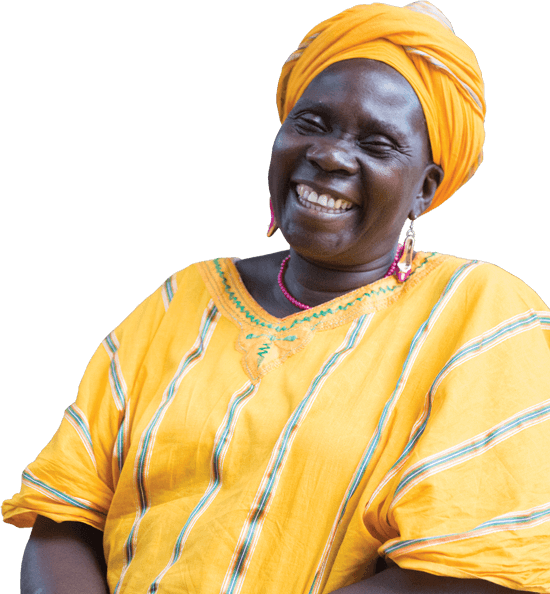

Dear Friends,
When Cameron Townsend founded Wycliffe Bible Translators in 1942, he was committed to telling people the Good News of Jesus Christ by giving them access to the Bible in the language and form they understand best.
None of us could have imagined the accelerated expansion and advancement of Bible translation we are experiencing today. Fueled by technology, partnerships and a unified mission with the world’s leading translation organizations, this accelerated growth is deeply encouraging.
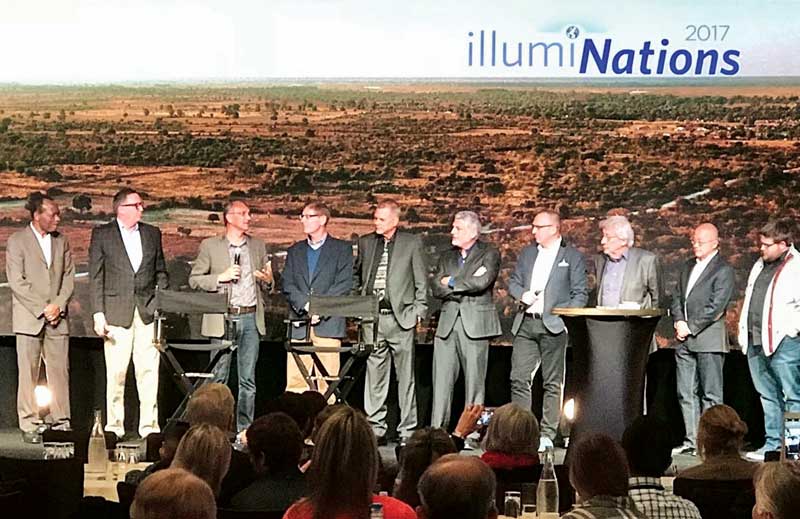
In the photo are leaders from 10 international Bible translation organizations who are currently working around the world to bring God’s Word to every tribe, tongue and nation. They recently came together in Washington, D.C., for a shared vision-building event. Setting aside logos and brands, these organizations displayed their commitment to work together to bring God’s Word to all people.
These 10 agencies account for nearly all of the more than 2,500 active worldwide Bible translation projects. Together, we are diligently planning to start the remaining translation projects by the year 2025 so that all people will have access to God’s Word. This collaboration has created even more opportunities for accelerated access to Scripture, for improved quality and for better stewardship of resources.
In the following pages you will learn about Wycliffe USA’s contribution to this effort. I am grateful to all for the investments that are moving Bible translation forward as we press toward our common goal — the start and completion of Bible translation in every community still needing God’s Word.
Warmly in Christ,
Bob Creson
President/CEO
Wycliffe Bible Translators, USA
As the world’s youngest country, South Sudan had a tumultuous start. It was born in 2011 out of one of the longest civil wars in recorded history. And as of 2017 it ranks highest on the Fragile States Index, meaning it is more vulnerable to conflict or collapse than any other state in the United Nations.
This is where Pastor Bennett Marona calls home.
Bennett speaks Baka, a minority language used by about 26,000 people. He got started in Bible translation in 1992, the same year Wycliffe linguists Doug and Anne Sampson joined the Baka New Testament translation project.
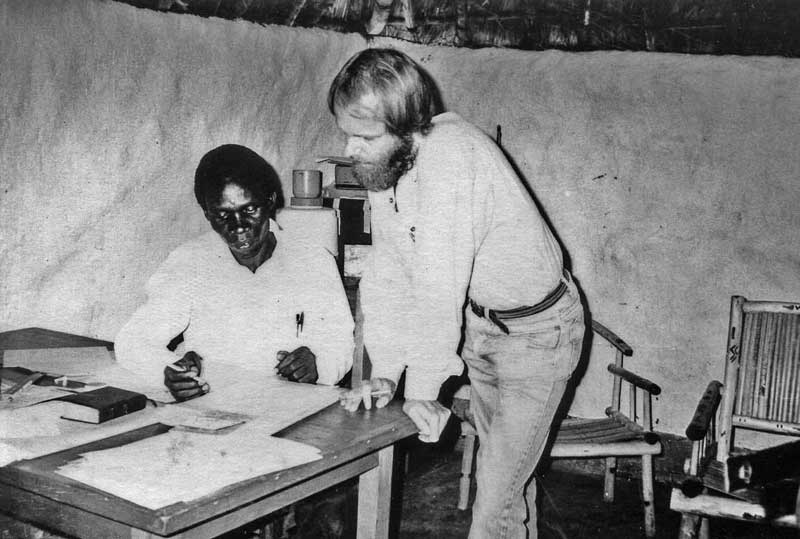
The Baka project had actually begun years earlier with Wycliffe missionaries Kirk and Carla Parker doing literacy and translation work. But the project stalled due to increasing instability caused by Sudan’s second civil war. The Parkers returned home, and thousands of Sudanese, including Bennett’s family and the Baka community, were forced to evacuate to the Democratic Republic of the Congo (DRC, then called Zaire).
Bennett remembers hastily gathering his family and fleeing into the bush with just the clothing they were wearing.
“My family and I, we walked for seven days, walking day and night, day and night,” he said. “There was no food; many children died on the way because of thirst and hunger.”
Then one night about halfway to the DRC, while they were sleeping hidden in the bush, they heard gunshots. The crowds leapt up and ran, but Bennett heard a voice speak directly to him, telling him to take a different route. Later he learned that hundreds of those who’d gone the opposite way had run directly into the ambush and been killed.
Again and again, God led Bennett through the rest of the journey this way. “Whatever direction I thought of going, we’d go there safely,” he said.
His family eventually settled into a refugee camp about eight miles outside the town of Dungu, in DRC, where the Sampsons were living. Bennett stayed in a small house in town to work on literacy and the Baka New Testament translation with Doug.
Before long the soldiers based in Dungu were becoming angry because they hadn’t been paid in several months. They decided to loot the town, and started shooting in the market near the translation office.
Bennett and Doug ran back to meet Anne at the Sampsons’ home. They just managed to hide the translation work and equipment through a loose panel in their ceiling before the soldiers arrived at their door. The soldiers shot a hole through the roof of their veranda, demanding that the Sampsons “open up, or else.”
When the Sampsons opened the door, the soldiers and dozens of locals ran inside and looted the home, carrying off everything of value they could find.
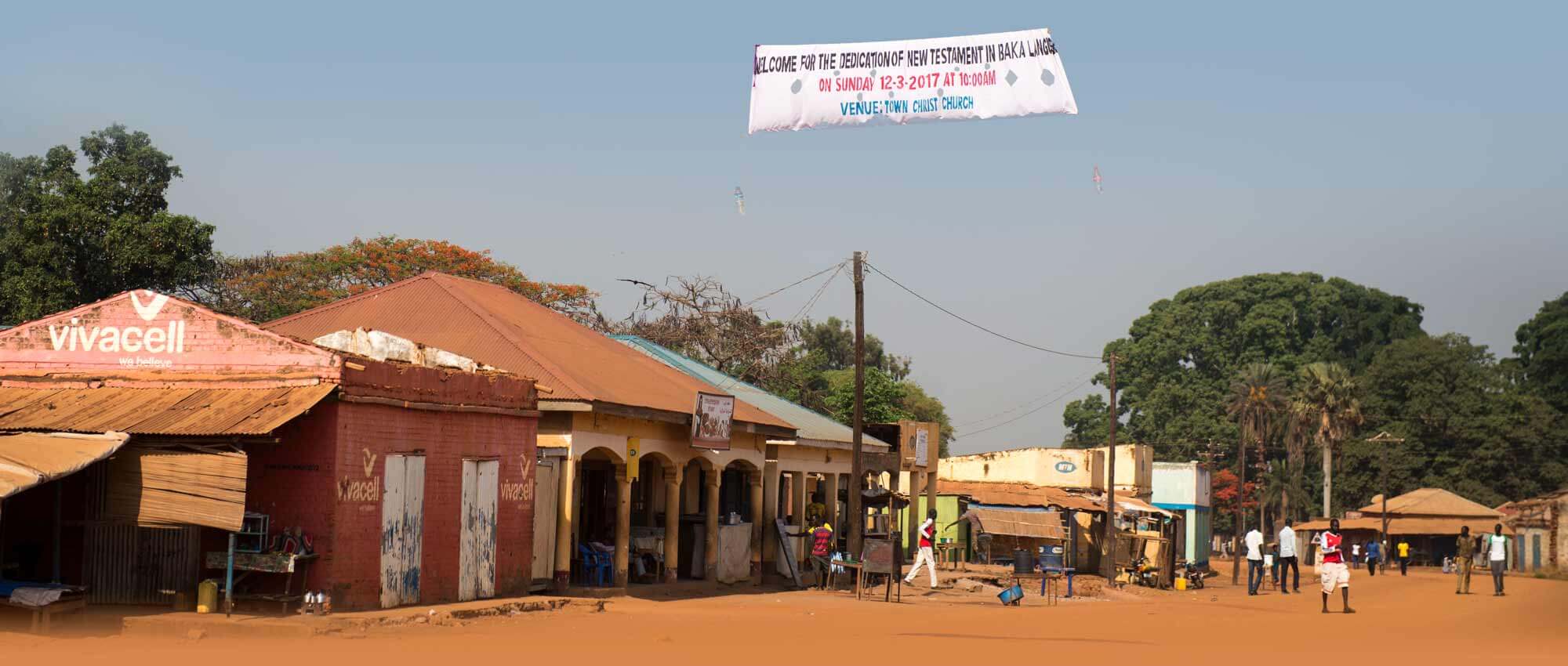
At one point when the war made it impossible for the the Sampsons to remain in the DRC, Bennett and a fellow Baka rode bicycles for two hundred miles to meet with them at a safer location in Uganda.
Still, they kept the project moving forward.
Then one day armed soldiers kidnapped Bennett from the translation office in DRC. He was one of nine held captive. One by one, each night the soldiers killed one of the prisoners with machetes.
“It was a terrible kind of killing that I witnessed,” Bennett said. “A person was tied, both legs and hands, and laid down. You could hear a human being screaming at the top of their voice, until … ”
For eight nights in a row, Bennett witnessed this brutality and awaited his own fate, until he was the only prisoner left.
At midnight, they came for him.
“One of the soldiers said, ‘Pastor, come. The commanders are calling you,’” Bennett remembers. “I thought, ‘They’re going to kill me … just like they killed the others.’” But with no explanation, the soldiers let him go.
“It’s hard for me to know why I was not killed,” he said. “Truly, God chose me to be a translator. Bringing the Word of God to my people is more important to me than all other things. I want them to hear God’s voice with their own ears. All the time I prayed, ‘God, speed this work so that they have a Bible and read your words.’”
Facing trial after trial, Bennett demonstrated his commitment to the task God called him to complete, his dedication to the Sampsons, and his willingness to sacrifice his life for their shared mission.
Finally, in March 2017, Bennett’s prayer for the Bakas was answered. After more than 30 years of perseverance, thousands of Baka speakers came together to dance, sing and experience the Word of God in their language at the Baka New Testament dedication.
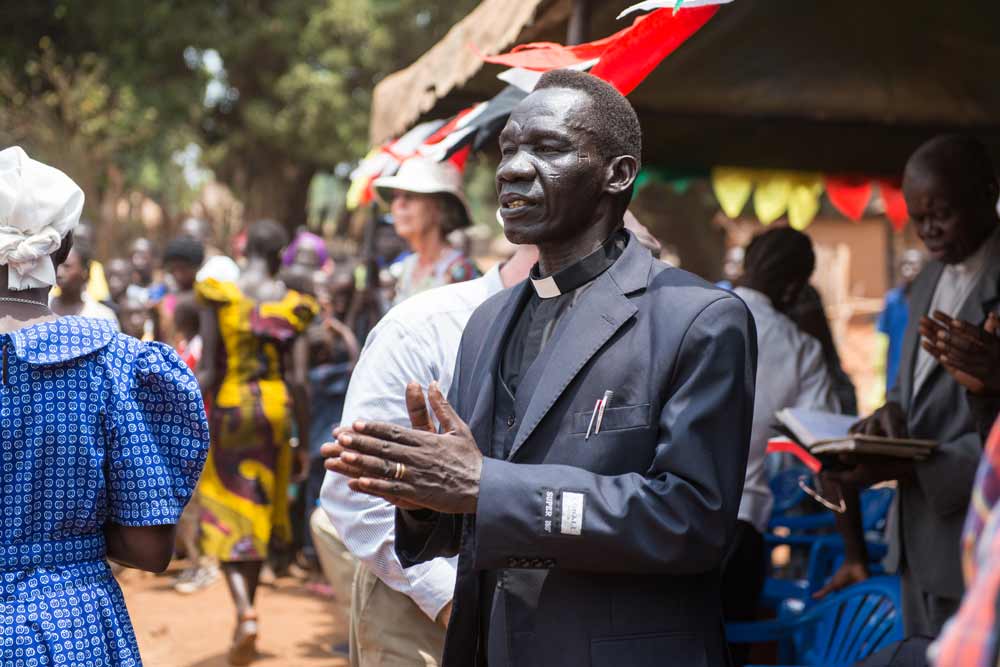
“Now that the whole New Testament is out, thousands of Bakas are going to say, ‘Hallelujah! Praise the Lord!’” he said. “I see every Baka community member as my biological child. I love them.”
His favorite part of the day was when the boxes of New Testaments were opened, and hundreds of his fellow Bakas rushed forward to get their copies.
“At that time, I forgot all the challenges I went through.”
God’s Word tells us to count it joy when you face trials, because this produces steadfastness (James 1:2). Bennett’s relationship with the Lord is deeper because he has remained steadfast in Bible translation.
“Whenever I sit at the desk to do translation, it’s like I’m sitting with God at the same desk; we are facing one another,” he said.
“There’s really no benefit like what I get from translation.”
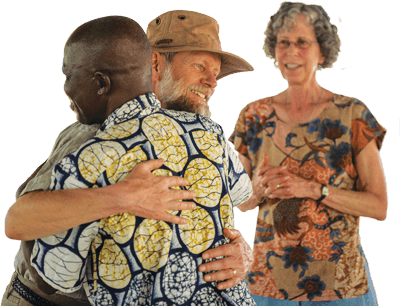

The Bible tells us that faith comes by hearing the Word of God. But sometimes hearing doesn’t happen in the ear. For as many as 70 million Deaf people around the world, “hearing” happens with the eyes.
Because the Deaf are a minority, they are at a disadvantage when it comes to operating within a hearing culture. Unfortunately the Deaf have suffered a long history of misunderstanding and discrimination.
It may surprise you to learn that sign languages are completely different than spoken or written languages. For example, despite the similarity in name, Thai Sign Language is nothing like spoken Thai. They are as different as English and Spanish. So for the Deaf to learn to read, they also have to learn a totally different language.
But it’s even more complicated than that.
You see, spoken languages work by lining up sounds in time — sound after sound after sound after sound. When we speak English, for example, we can add a bit of impact to our words by changing our intonation and adding facial expressions and hand movements, but we’re still limited to one word at a time. And when we have to write our words down, we’re even more limited because we lose those other elements.
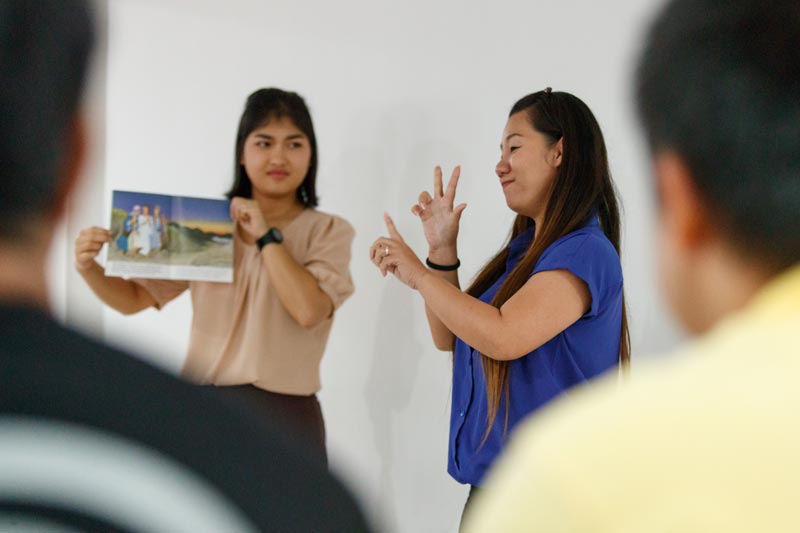
By comparison, sign languages are extremely dynamic. A person speaking a sign language uses every part of their body to communicate — hands, facial expressions, posture and body movement.
It can be difficult for a Deaf person to learn to read a spoken language.
For one thing, it’s not their language. For another, it’s just static symbols on a page — a totally different format than they use in everyday communication.
If hardly any Deaf people can read and understand the Bible, how do Deaf churches form and grow? The troubling fact is that few do. In fact, just 2 percent of Deaf people around the world have been introduced to the gospel, and those who do follow Christ struggle greatly to grow in their faith.
“It used to be that when I’d go to a Bible study, everybody would have their book in front of them,” said Mark Penner, a Bible translation consultant currently serving the Japanese Sign Language and Thai Sign Language projects.
“And by the time the hour is up, maybe you’ve figured out what the Japanese Scripture is trying to say, and then you’re done. And you all go home and you’re like, ‘I learned some Japanese today. How exciting.’”
Mark originally went to Japan more than 30 years ago hoping to help the Deaf plant more churches and grow, but together they quickly discovered that church planting and growth weren’t going to succeed without the Scriptures in Japanese Sign Language. That’s when they decided to start a Bible translation, and that’s how Mark went from being a church planter to becoming a Bible translation consultant.
“Having a Bible that everyone can understand levels the playing field,” said Mark. “It doesn’t matter if you’ve been in the church fifty years or fifty days — you can look at it, you can understand it. Otherwise it’s only those Deaf with the ability to read and understand clearly that can preach, and people with both of those skills are very rare.”

It would not be an exaggeration to say that sign languages are the final frontier of Bible translation. There’s still much that linguists don’t know about the sign languages of the world. In fact, in a way we’re really just beginning to explore most of these languages for the first time. But one thing is clear — the need for Bible translation among the Deaf is great, much greater than we could have imagined just a few years ago.
Today linguists estimate there are more than 400 sign languages in use around the world. But so far only 138 of those languages have been cataloged.
Even among those sign languages that are known best, like Spanish Sign Language or American Sign Language, not one has a full Bible translation. And American Sign Language is the only one with a complete New Testament.
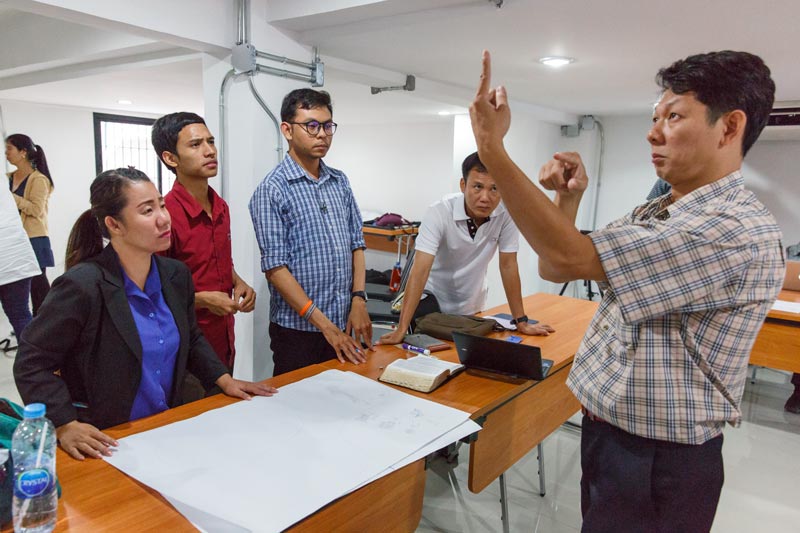
If you ask Deaf translators who are currently involved in Scripture translation what their dreams are for the future, you’ll discover a common thread — they’re hungry for the Word and they desperately want to share the good news with their communities.
“My goal for the Scripture translation is to spread the Good News so that Deaf people don’t have to rely on the written word but can have it in their heart language,” said Pastraporn Sarakong, wife of Panuwat Manee and leader of the Chronological Bible Translation team, which translates Bible stories in Thai Sign Language.
At the end of the day, that’s what all Bible translation work is about — leading people to faith in Jesus through the Word of God — whether it comes through their ears or through their eyes.

— Romans 10:17 (NLT)

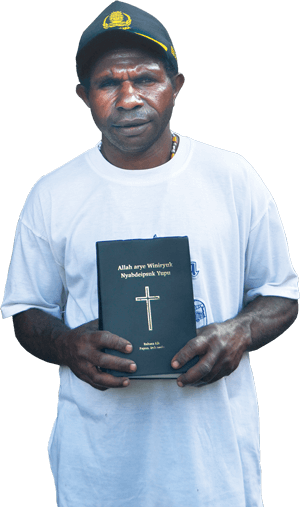
On May 23, 1902, Reverend John Goldie led a party of missionaries to bring the gospel to the Roviana people on New Georgia Island. These missionaries included many Pacific Islanders from places like Tonga, Fiji and Samoa. About a century before they traveled to the Solomon Islands, the gospel had come to those countries. As a result of hearing the Good News, people passionately went out to spread its message — including to the Roviana people.
Exactly 115 years later, descendants of those who received the gospel in 1902 were in attendance for the dedication of the complete Roviana Bible!
The United Church held a two-and-a-half-day celebration, because there was much to rejoice over! Not only were the people celebrating the 115th year of the gospel arriving to their island and the complete Roviana Bible, but they were also rejoicing over the launch of the audio New Testament in their language.
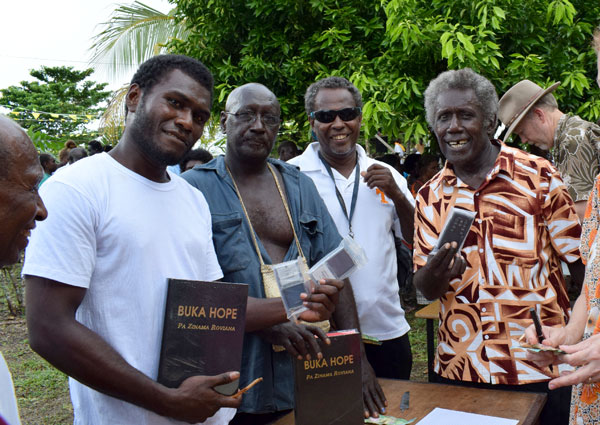
Wycliffe USA Chief Operations Officer Russ Hersman attended the celebration and was in awe of the sheer amount of collaboration that took place between different organizations to bring God’s Word to the Roviana people.
The Bible Society of the South Pacific was the publisher of the New Testament. SIL International and the Solomon Islands Translation Advisory Group (SITAG) were advisors on the project. Wycliffe USA and Seed Company contributed to the funding of the project at different points. Faith Comes By Hearing recorded the Bible. Youth With A Mission (YWAM) was also present for the dedication. There was a team of eight of them, and three of those eight were Roviana speakers themselves. They were at the dedication to help sell the Bibles. And they helped to take the Bibles and audio recording from village to village to distribute them.
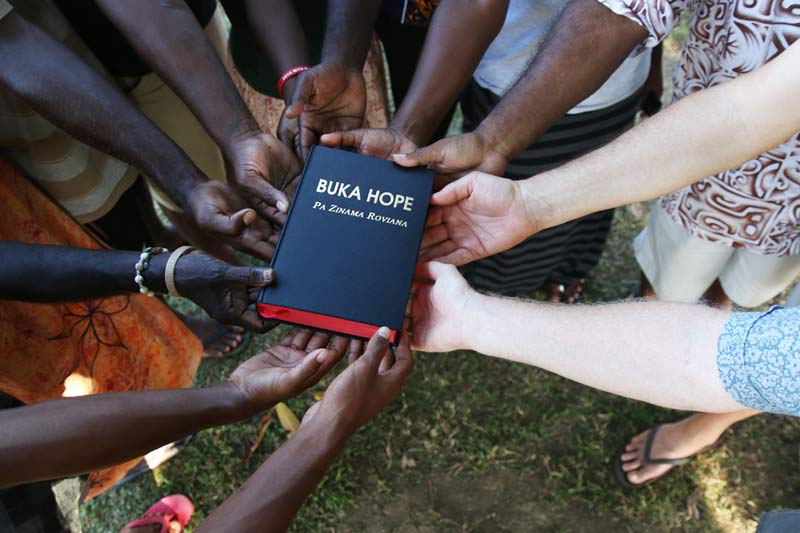
Later this year, the Jesus Film Project — in partnership with YWAM — will be in the Solomon Islands to record the “JESUS” film into Roviana. “It’s such an awesome collaboration,” Russ said. “All these agencies have come together to help translate, distribute and promote the use of the Bible in Roviana.”
For many years, Roviana was the language of the United Church in the Solomon Islands. So not only will the Bible be put to use, but it’ll also be used as the source text for other translations in the region!
“It’s cool to see the way this project has massive ripple effects,” Russ affirmed. The Roviana project is truly an example of what it looks like to be a part of the global Church.
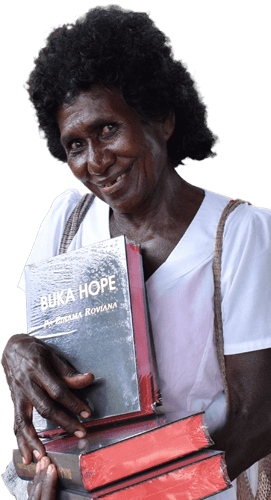
| Assets | 2017 | 2016 |
|---|---|---|
| Cash and cash equivalents | $12,385 | $8,324 |
| Investments | 68,313 | 65,291 |
| Contributions receivable — net | 625 | 1,810 |
| Bequests receivable | 258 | 259 |
| Notes receivable | 648 | 986 |
| Amounts due from related entities | 517 | 810 |
| Other assets | 3,529 | 2,862 |
| Investments related to fiduciary agreements | 19,379 | 19,044 |
| Property and equipment — net of accumulated depreciation | 39,058 | 38,642 |
| Assets held for endowment | 4,125 | 2,601 |
| Total Assets | $148,837 | $140,629 |
| Liabilities | 2017 | 2016 |
|---|---|---|
| Accounts payable and accrued expenses | $2,086 | $1,918 |
| Medical claims payable | 2,430 | 2,381 |
| Amounts due to related entities | 460 | 784 |
| Accrued compensation | 8,043 | 7,795 |
| Fiduciary agreements | 11,444 | 11,822 |
| Total Liabilities | $24,463 | $24,700 |
| Net Assets | 2017 | 2016 |
|---|---|---|
| Unrestricted: | ||
| Undesignated | $19,519 | $17,900 |
| Equity in property and equipment — net | 38,513 | 38,067 |
| Board designated | 6,983 | 6,667 |
| Corporate reserves | 18,939 | 18,125 |
| Temporarily restricted | 36,969 | 33,087 |
| Permanently restricted | 3,451 | 2,083 |
| Total Net Assets | $124,374 | $115,929 |
| Total Liabilities and Net Assets | $148,837 | $140,629 |
| Operating Support and Revenue | 2017 | 2016 |
|---|---|---|
| Contribution income | $188,799 | $186,084 |
| Service income | 2,794 | 2,856 |
| Interest and dividend income | 1,284 | 1,270 |
| Other income | 47 | 100 |
| Total Operating Support and Revenue | $192,924 | $190,310 |
| Operating Expenses | 2017 | 2016 |
|---|---|---|
| Program services: | ||
| Bible translation and related programs | $144,870 | $146,174 |
| Supporting services: | ||
| General and administrative | 25,657 | 25,306 |
| Fundraising | 17,119 | 15,949 |
| Total Operating Expenses | $187,646 | $187,429 |
| Non-Operating Income/(Expenses) | 2017 | 2016 |
|---|---|---|
| Net realized/unrealized gain/(loss) on investments | $2,658 | $2,005 |
| Net realized/unrealized gain/(loss) on fiduciary agreements | 509 | 319 |
| Total Non-Operating Income/(Expenses) | $3,167 | $2,324 |
| Net Assets | 2017 | 2016 |
|---|---|---|
| Change in net assets | $8,445 | $5,205 |
| Net assets — beginning of year | 115,929 | 110,724 |
| Net Assets — End of Year | $124,374 | $115,929 |